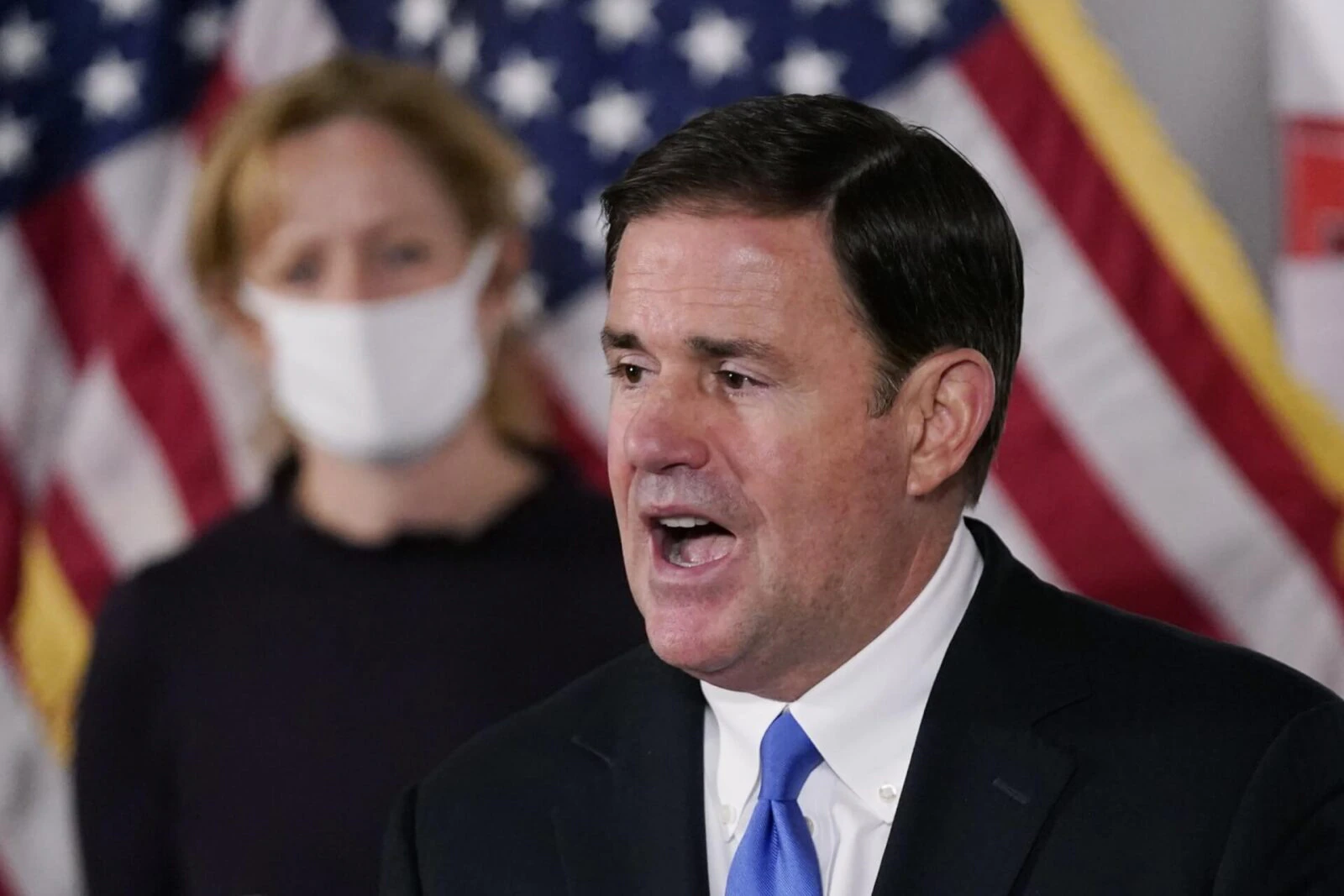Georgia Gov. Brian Kemp rejected President Joe Biden’s characterization of a newly enacted law that seeks to improve the integrity of elections in the Peach State.
“It is obvious that neither President Biden nor his handlers have actually read SB 202, which I signed into law yesterday,” Kemp said in a statement emailed to The Epoch Times. “This bill expands voting access, streamlines vote-counting procedures, and ensures election integrity.”
The 95-page law adds a slew of changes to the way Georgians vote, including requiring photo or state-approved identification to vote absentee by mail. The law also mandates that secure drop boxes be placed inside early voting locations, with constant surveillance, and expand early voting across the state.
The law also shortens the election cycle from nine to four weeks and requires a minimum of one week of early voting before election day. People who wish to vote absentee are faced with new requirements as well.
Earlier on Friday, Biden criticized the law as “a blatant attack on the Constitution and good conscience.” He also labeled the law as the “Jim Crow in the 21st century,” referring to Jim Crow laws that enforced racial segregation in the south.
“There is nothing ‘Jim Crow’ about requiring a photo or state-issued ID to vote by absentee ballot—every Georgia voter must already do so when voting in-person,” Kemp said in response. “President Biden, the left, and the national media are determined to destroy the sanctity and security of the ballot box.”
The Biden administration is currently looking at pathways to address the concerns raised by the new law. Biden told reporters on Friday that the Justice Department and his administration are “taking a look” at the legislation.
“We’re working on that right now. We don’t know quite exactly what we can do at this point. The Justice Department’s taking a look as well,” Biden said.
Georgia’s Secretary of State Brad Raffensperger, who was sued by voting rights groups on Thursday over the passage of the law, also responded to the criticism, saying that “there’s no rational argument against requiring state ID—provided for free to those who don’t have a driver’s license—for absentee ballots,” according to a statement sent to media outlets.
Raffensperger said he implemented a version of the identification requirement during the November 2020 election, saying that all absentee ballot requests that came through the state website were cross-referenced with a driver’s license database or another record.
“The left said that photo ID for in-person voting would suppress votes. It didn’t. Registration and turnout soared, hitting new records with each election cycle. Their cataclysmic predictions about the effects of this law are simply baseless. The next election will prove that, but I won’t hold my breath waiting for the left and the media to admit they were wrong,” he added.
Three voting rights groups have filed a lawsuit against Raffenserger and other officials over the new law, in an attempt to block its enforcement and have it declared unconstitutional.
The groups have taken issue with some of the measures to increase election integrity, arguing that identification requirements for absentee voting are “unnecessary and burdensome,” and placing absentee drop boxes inside early voting locations would “unduly restrict” voting. The lawsuit also argues that prohibiting the state from distributing unsolicited absentee ballot applications, and prohibiting third parties from collecting absentee ballot applications—which Republicans say could result in ballot harvesting—represents voter suppression.
The lawsuit also claims banning non-poll workers from giving food or drink to voters waiting in line is a form of voter suppression. The Georgia law stipulates that individuals are not allowed to solicit votes by distributing campaign materials or gifts, or offer to give money or gifts including food and drink in the vicinity of the polling place, including the polling line.
“These provisions lack any justification for their burdensome and discriminatory effects on voting,” the groups argue in their lawsuit.
Former President Donald Trump, who was highly critical of Kemp and Raffensperger’s handling of the November 2020 election, lauded the passage of the Georgia law.
“Congratulations to Georgia and the Georgia State Legislature on changing their voter Rules and Regulations. They learned from the travesty of the 2020 Presidential Election, which can never be allowed to happen again. Too bad these changes could not have been done sooner!” Trump said in a statement released via his Save America political action committee.
Raffensperger’s press office did not immediately respond to The Epoch Times’ request for comment on the lawsuit.






